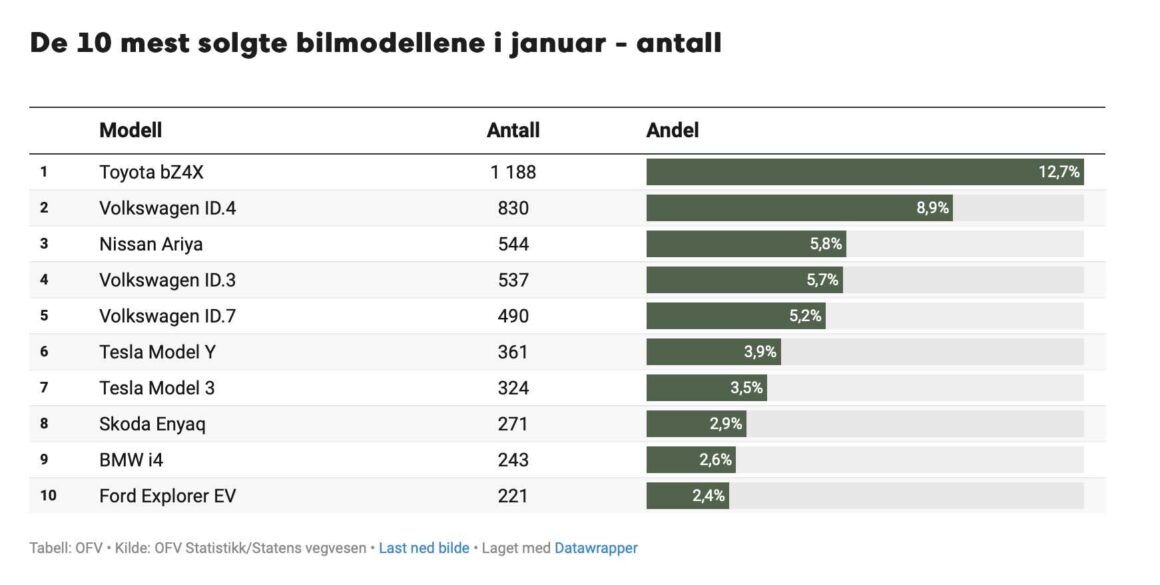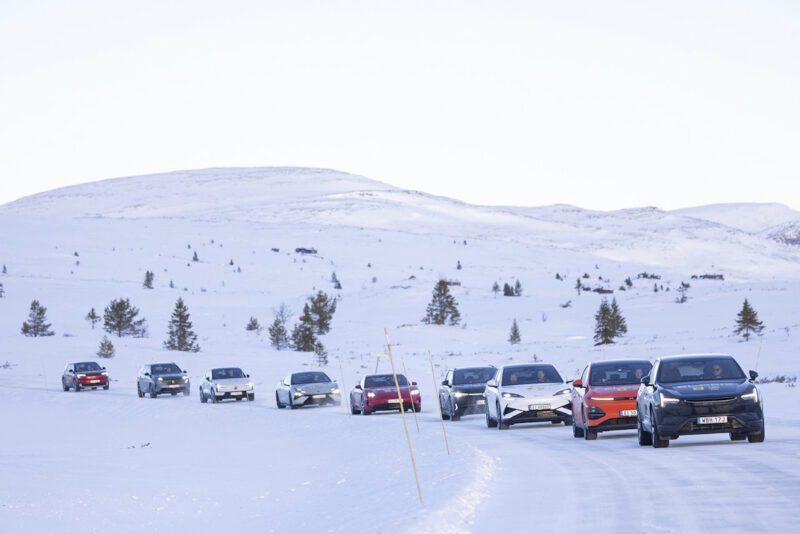Norway has once again demonstrated the possibility of a new car market dominated by electric vehicles (EVs), with fully electric passenger cars accounting for 96 per cent of the nearly 10,000 new cars sold in January.
New figures published this week by the Opplysningsrådet for veitrafikken (OFV), Norway’s Road Traffic Information Council, revealed that 9,343 new passenger cars were registered in Norway in January, a rise of 82 per cent than a year earlier.
Øyvind Solberg Thorsen, OFV director says the group is hopeful that positive economic signals will see new car sales return to previous highs, which given the makeup of EVs in the overall numbers, presages well for future records.
Of the 9,343 new passenger cars registered in January, 8,954 were electric, accounting for 95.8 per cent.
An additional 219 new hybrid variants were sold during January, accounting for 2.8 per cent, meaning that electrified vehicles accounted for a whopping 98.6 per cent of all new passenger car sales in Norway in January.
In fact, only 170 purely non-electric vehicles were sold in January – including 137 diesel passenger cars and 33 traditional gas-powered cars. This means that non-electrified vehicles have been almost completely eradicated from Norway’s new passenger car market, with a market share of only 1.8 per cent.
The share of EVs for January also increased year-to-year, from 92 per cent in January 2024 to 96 per cent in January 2025.

Interestingly, the list of best-selling EVs was topped by Toyota with its bZ4X, followed by three vehicles that are not yet available in Australia – the VW ID.4, the Nissan Ariya, the VW ID.3 and the VW ID.7.
Tesla sales slumped 38 per cent to 689, with the Model Y (the best selling car in both Norway and Sweden in 20034) and Model 3 falling to the Number 6 positions respectively, despite the soaring overall market. Tesla’s market share plunged to just over 7 %, from more than 21 % in 2024.
Tesla sales have also slumped 44 per cent in Sweden, according to Reuters, where a survey by Novus reveals the share of Swedes having a positive view of Tesla declined to just 11 per cent.
In France, Tesla sales slumped more than 60 per cent, according to Bloomberg, and 33 per cent in Australia, according to the Electric Vehicle Council.
In each country, the growing influence of Elon Musk’s right-wing political actions are being blamed. Others cite increased competition, but the models beating the Tesla EVs in Norway are not exactly superior in price or performance.
The OFV, meanwhile, is celebrating the jump in overall sales but is wary of jumping to conclusions too quickly.
“It’s a nice increase and takes us in the right direction. But we believe it’s too early to say that the electric car goal has been reached, as [the Norwegian Automobile Association (NAF)] claimed last week,” said Solberg Thorsen.
“The 2025 goal is one hundred percent electric cars. The last few percent may be far off, and it’s too early to draw conclusions. Only during the last five days of January did the share of electric cars actually decrease slightly, and a few hundred chose a diesel or gasoline car.”
Joshua S. Hill is a Melbourne-based journalist who has been writing about climate change, clean technology, and electric vehicles for over 15 years. He has been reporting on electric vehicles and clean technologies for Renew Economy and The Driven since 2012. His preferred mode of transport is his feet.

